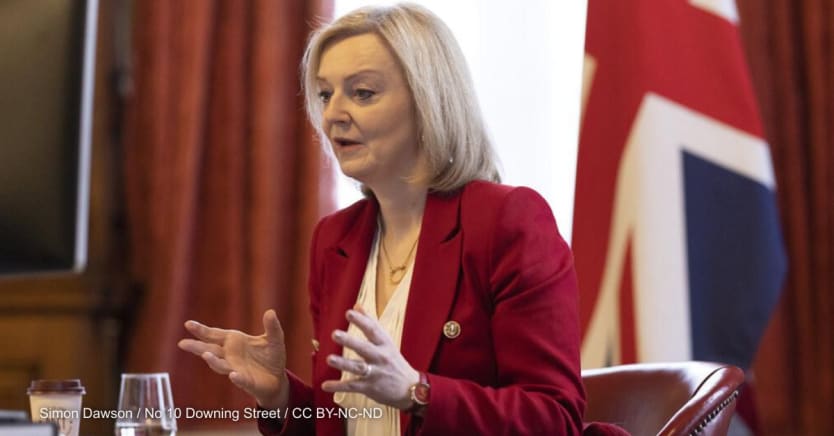
The United Kingdom’s long-awaited international development strategy will “promote British expertise and bring more countries into the orbit of free, democratic nations,” according to Foreign Secretary Liz Truss.
The aid budget will be re-balanced toward bilateral programs that were hit hard by the country’s aid cuts policy, “to give the UK greater control and flexibility over how taxpayers’ money is spent,” she said in a statement Tuesday.
The government has not revealed exactly when the strategy will be published, but various sources tell Devex that the Foreign, Commonwealth & Development Office plans to release it by the end of March.
Truss' UK development plan to focus on investment, economic partnerships
Foreign Secretary Liz Truss has set out her international policy vision, saying the U.K. will work to build "a network of liberty that spans the world." But her speech said little about traditional development policy areas.
Truss said the new aid spending strategy would “ultimately benefit the British people.” The statement made no reference to the Sustainable Development Goals or reducing poverty — the latter of which is the legal justification for determining aid spending, according to U.K. legislation. Also absent was any discussion of restoring the aid budget to 0.7% of gross national income, despite continued calls from the development sector to return to the higher budget.
The statement is another sign from the U.K. government that its approach to international development is fundamentally shifting and likely to be much more influenced by foreign policy goals and economic development — particularly through investment — than it has historically.
Truss also acknowledged that the country’s £1.4 billion ($1.9 billion) pledge for the 20th replenishment of the World Bank’s International Development Association — a financial institution for the lowest-income countries — represented a 54% cut from a previous pledge in 2019. It was an unusually transparent disclosure for an agency that has received criticism for its handling of the aid cuts.
Truss wrote that the cut would “allow us to focus funding on UK bilateral programmes and control how exactly taxpayer’s money is used to support our priorities, including clean infrastructure investment, promoting British expertise, supporting women and girls, delivering humanitarian aid.”
But Richard Watts, a senior adviser on development finance at Save the Children UK, wrote on Twitter that the cut to IDA “won't solve the [U.K. government’s aid budget] crunch in 2022 or 2023.”
“It will only reduce IDA funding in 2024, exactly when they want to go to 0.7%,” he wrote.
What was the reaction?
The government has been signaling its intention to move its development policy in this direction for some time, but more granular aspects have generally remained unclear.
The prospect of increased bilateral funding in Truss’ statement, amid the “extremely difficult circumstances created by the aid cuts,” was welcomed by Laurie Lee, the CEO at CARE International UK, an NGO.
“The aid cuts made in 2021 by her predecessor protected [the] World Bank entirely. Almost all of the cuts hit excellent UK aid projects instead. At best this was very unbalanced. At worst it was reckless and probably contrary to the impact assessment which currently remains secret,” tweeted Lee.








